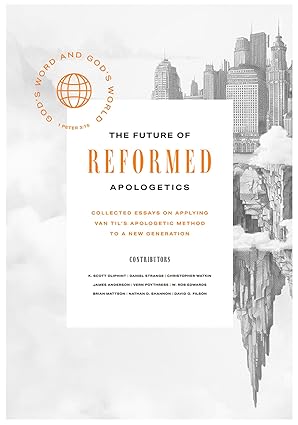A Brief Book Summary from Books At a Glance
Editor’s Note: In his Foreword to this book, William Edgar provides a very brief summary overview of the book and each essay. We offer it here for our members with the kind permission of Westminster Seminary Press.
Foreword
by William Edgar
We live in a world full of conflict. America still has some predominance among the nations, but its role is rapidly being put into question. In his powerful book, The Post-American World, Fareed Zakaria contends that China, India and other powers are knocking at the door. Our leaders are fighting over whether, or how much, to support Ukraine in its war against Russia. America is experiencing an unprecedented polarization between “liberals” and various stripes of reactionaryism. We are losing our penchant for civil discourse. Debates over LGBTQ advocacy rage. Popular culture is a mixed bag. There exists some good quality here and there. But there exists a good deal of junk, from Drag Queens to blood and gore in films. Christian missions is having some success, but there is strong opposition to the gospel from the cults, from governments, from hostile people everywhere.
In such a world, one that extends far beyond America, it is understandable that many people would consider a conference on the legacy of Cornelius Van Til to be obscure or even irrelevant. Understandable but greatly mistaken. In my opinion this kind of conference is long overdue. It is the conviction of every participant that Van Til’s message is the decisive solution to the great problems engendered by fallen humanity. This is because at the heart of his thought is the unconditional authority of the self-attesting Christ. He is indeed “Lord of Lords”. This may be the single most difficult truth to face humanity, and the most challenging reality to persuade people about. Yet it is “the power of God” which will ultimately succeed because it originates in God’s ineffable love. That is the task of apologetics, the discipline Van Til spent his life setting forth. It is good to remember:
“Now in putting everything in subjection to him, he left nothing outside his control. At present, we do not yet see everything in subjection to him. But we see him who for a little while was made lower than the angels, namely Jesus, crowned with glory and honor because of the suffering of death, so that by the grace of God he might taste death for everyone.” (Hebrews 2:8-9)
Dr. Van Til did nothing more, but nothing less, than explicating this truth. He trusted indeed that “we (believers) see him”, but many do not. His views are splendidly put forth in his books and his lectures. These had a certain radiance. They influenced his primary audience, the students at Westminster Seminary, where he taught for some 40 years (1929-1979). But they also reached many outside the walls of the Seminary. He was obviously called “for such a time as this”. Yet, one could have hoped his thought to be more widespread. . . .
[To continue reading this summary, please see below....]The remainder of this article is premium content. Become a member to continue reading.
Already have an account? Sign In
